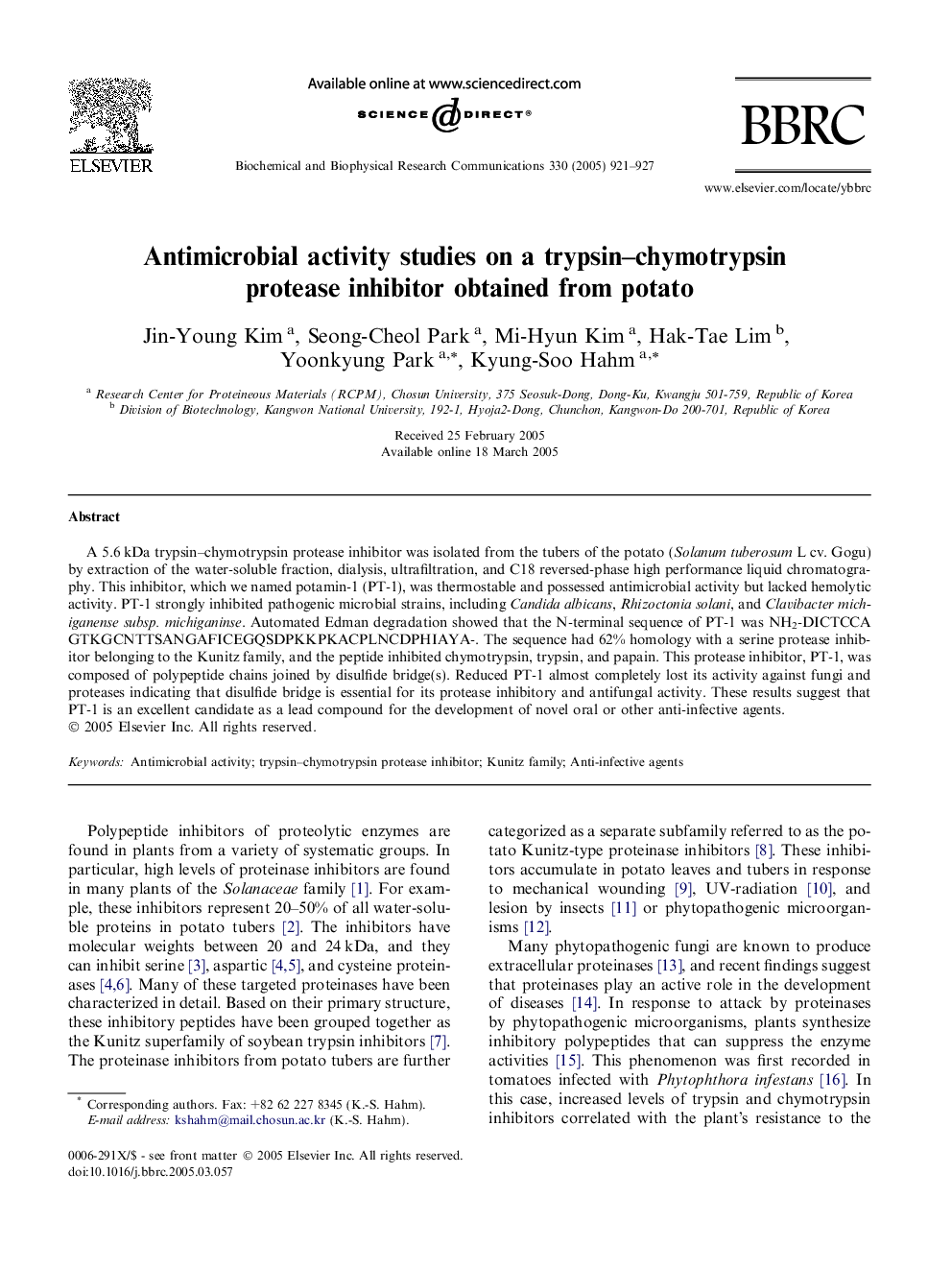| Article ID | Journal | Published Year | Pages | File Type |
|---|---|---|---|---|
| 10770306 | Biochemical and Biophysical Research Communications | 2005 | 7 Pages |
Abstract
A 5.6Â kDa trypsin-chymotrypsin protease inhibitor was isolated from the tubers of the potato (Solanum tuberosum L cv. Gogu) by extraction of the water-soluble fraction, dialysis, ultrafiltration, and C18 reversed-phase high performance liquid chromatography. This inhibitor, which we named potamin-1 (PT-1), was thermostable and possessed antimicrobial activity but lacked hemolytic activity. PT-1 strongly inhibited pathogenic microbial strains, including Candida albicans, Rhizoctonia solani, and Clavibacter michiganense subsp. michiganinse. Automated Edman degradation showed that the N-terminal sequence of PT-1 was NH2-DICTCCAGTKGCNTTSANGAFICEGQSDPKKPKACPLNCDPHIAYA-. The sequence had 62% homology with a serine protease inhibitor belonging to the Kunitz family, and the peptide inhibited chymotrypsin, trypsin, and papain. This protease inhibitor, PT-1, was composed of polypeptide chains joined by disulfide bridge(s). Reduced PT-1 almost completely lost its activity against fungi and proteases indicating that disulfide bridge is essential for its protease inhibitory and antifungal activity. These results suggest that PT-1 is an excellent candidate as a lead compound for the development of novel oral or other anti-infective agents.
Related Topics
Life Sciences
Biochemistry, Genetics and Molecular Biology
Biochemistry
Authors
Jin-Young Kim, Seong-Cheol Park, Mi-Hyun Kim, Hak-Tae Lim, Yoonkyung Park, Kyung-Soo Hahm,
